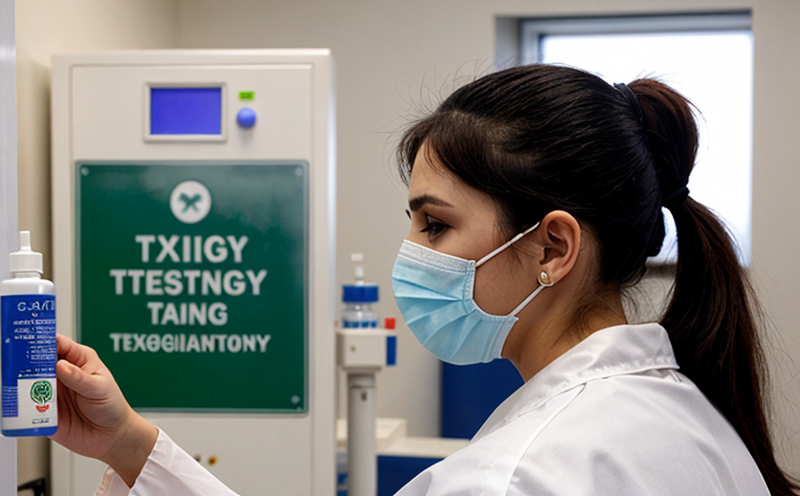Cardiovascular Safety Blood Pressure Monitoring Testing
Cardiovascular safety is a critical aspect of pharmaceutical development. The cardiovascular system plays an essential role in maintaining homeostasis within the body, and disruptions due to drug exposure can lead to severe health consequences. Therefore, ensuring that new drugs do not induce adverse cardiovascular effects is paramount. Blood pressure monitoring testing, specifically for cardiovascular safety, helps identify potential issues early in the drug development process.
The primary goal of this service is to evaluate the impact of a compound on blood pressure parameters. This includes assessing systolic and diastolic blood pressures, heart rate variability, pulse pressure, and other relevant metrics that could indicate adverse effects such as hypertension or hypotension. The testing protocol adheres strictly to international standards such as ISO 10993-12 and ASTM E2587.
Our laboratory employs a comprehensive approach, using state-of-the-art instrumentation like oscillometric devices and auscultatory sphygmomanometers to measure blood pressure accurately. Specimen preparation involves drawing blood from healthy volunteers under controlled conditions. These samples are then analyzed for baseline measurements before and after administering the test substance.
For this service, we follow a rigorous procedure which includes:
- Baseline assessment of vital signs
- Administration of the test compound according to predefined protocols
- Continuous monitoring of blood pressure using advanced equipment
- Data collection and analysis
- Reporting results against established safety thresholds
The data collected during these tests are meticulously analyzed by our team of experienced toxicologists. We apply statistical methods to determine whether any observed changes in blood pressure parameters fall outside acceptable limits set forth by regulatory bodies like the FDA, EMA, and WHO.
Our laboratory ensures that all aspects of this testing align with current good manufacturing practices (cGMP) and good laboratory practices (GLP). Compliance with these guidelines is crucial for ensuring the reliability and reproducibility of our findings. We maintain strict quality control measures throughout every step of the process, from sample preparation to final report generation.
Understanding cardiovascular safety not only protects patients but also enhances public trust in pharmaceutical products. By offering this service, we contribute significantly towards safeguarding human health while supporting regulatory compliance and innovation within the industry.
Why It Matters
The importance of cardiovascular safety cannot be overstated when evaluating new drugs or medical devices. Adverse effects on the heart and blood vessels can have severe implications for patient well-being, potentially leading to life-threatening conditions if left undetected.
- Potential Health Risks: Drugs that cause hypertension or hypotension could lead to strokes, heart attacks, kidney damage, and other serious health problems.
- Regulatory Requirements: Regulatory agencies worldwide mandate thorough evaluation of cardiovascular safety as part of drug approval processes. Failure to meet these requirements can result in product recalls and legal repercussions.
- Patient Trust: Demonstrating robust cardiovascular safety measures builds confidence among healthcare professionals and the general public regarding the efficacy and safety of pharmaceuticals.
In summary, cardiovascular safety blood pressure monitoring testing is vital for both scientific integrity and patient protection. It plays a crucial role in advancing safe and effective treatments while upholding high standards of ethical conduct in research and development.
Quality and Reliability Assurance
- Standard Operating Procedures: Our laboratory adheres to strict standard operating procedures (SOPs) that have been validated through rigorous validation studies. These SOPs cover all aspects of sample preparation, measurement techniques, data analysis, and reporting.
- Instrument Calibration: All instruments used for blood pressure monitoring are calibrated regularly using certified reference materials. This ensures consistent and accurate measurements across multiple tests.
- Data Integrity: We implement robust quality assurance protocols to maintain the integrity of all collected data. This includes regular audits, review by independent reviewers, and adherence to GLP principles.
- Training and Certification: Our staff undergo continuous training in relevant techniques and methodologies. They are required to obtain certifications from recognized bodies before handling any tests.
In addition to these measures, we participate actively in inter-laboratory comparison exercises organized by regulatory authorities to further validate our methods and ensure reliability across different environments.
Our commitment to quality and reliability is reflected in the consistently high standards achieved in previous projects. Clients can rest assured that their reliance on us will yield accurate, reproducible results that meet or exceed expectations set forth by relevant guidelines.
Environmental and Sustainability Contributions
In our pursuit of excellence in cardiovascular safety blood pressure monitoring testing, we are also mindful of our environmental impact. By adopting sustainable practices throughout our operations, we strive to minimize waste generation and energy consumption without compromising on service quality or performance.
- Eco-Friendly Equipment: We utilize eco-friendly equipment that operates efficiently and minimizes resource usage during testing procedures.
- Recycling Programs: Unused consumables are recycled wherever possible to reduce landfill contributions. This includes proper disposal of hazardous materials according to local regulations.
- Energy Efficiency: Our laboratories are equipped with energy-efficient lighting systems and heating/cooling units designed to reduce overall carbon footprint.
By integrating these environmentally conscious practices into our daily operations, we contribute positively towards creating a more sustainable future. This aligns not only with corporate social responsibility goals but also supports broader efforts aimed at reducing the ecological footprint associated with pharmaceutical research and development activities.





